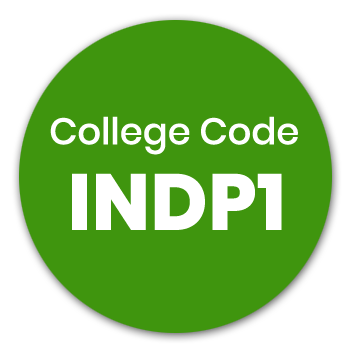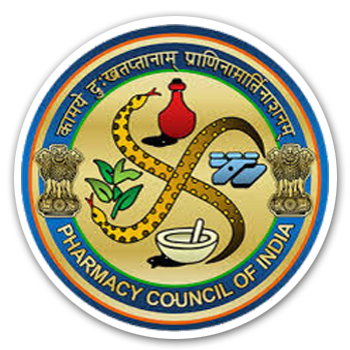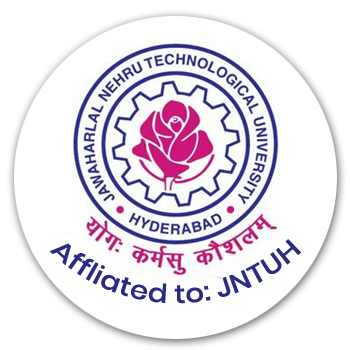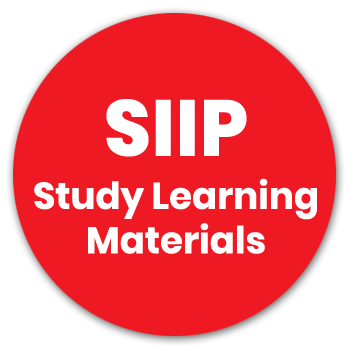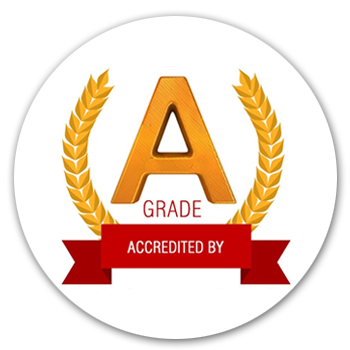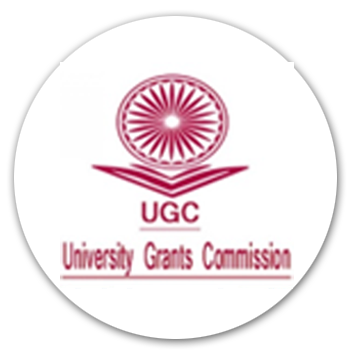Sri Indu Institute of Pharmacy Alumni Association (SIIPAA) BY LAWS
1. Name of the Association
2. Registered Office
New Loyola Educational Society, PLOT NO: 468,
Sheriguda Village, Ibrahimpatnam Mandal,
Ranga Reddy – 501 510. Telangana. India.
3. Aims and Functions of the Association
Sri Indu Institute of Pharmacy Alumni Association (SIIPAA) is a private registered body which is monitored by the by-laws. It is a non commercial Association with an objective of providing a platform for Alumni to come together and support the Sri Indu Institute of Pharmacy (SIIP) in building the Institution of world class. The spirit of the Association is to strengthen the alumni by cherishing the values and memories of their association with the SIIP, and interacting on continuous basis with the other alumni, students and the faculty along with administrative
“Sri Indu Institute of Pharmacy Alumni Association” (SIIPAA) herein after referred as Association. The Association works with the stakeholders such as staff, students and the management of SIIP.
- 3.1 Provide a platform for the alumni to interact with each other for the exchange of information, ideas, communicate their accomplishments, interests, and concerns, etc.
- 3.2 Foster alumni pride and enhance the glory of the College.
- 3.3 Inculcate the emotional bondage amongst the students, alumni and faculty.
- 3.4 Extend maximum help to the College in the placements and internships of students in renowned organizations and recognize Alumni for their significant contributions in the field of education for the betterment of society.
- 3.5 Propose and execute special projects: Infrastructure, technical projects, seminars and workshops etc.
- 3.6 Adoption of poor/ economically weaker students by providing scholarships and instituting awards for outstanding and distinguished pupils.
- 3.7 Inspire and infuse the spirit of enquiry and innovation among the students leading to solving technical issues of the society, leading to intellectual property rights.
4. Sphere in which the Association Shall Function
5. Membership and Categorization of Members
5.1 Permanent Members
5.2 Associate Members
5.3 Honorary Member / Patron Member
6. Admission/ Registration and Subscription
- 6.1 Life Membership fee from India (Includes Registration) : Rs. 500/-
- 6.2 Life Membership fee from Abroad (Includes registration) : $ 50/- USD (equivalent)
- 6.3 Associate Membership (Includes Registration) : Rs 300/-
- 6.4 The Life Membership fee/ Associate Membership fee is subject to change from time-to-time as decided by the General Body.
7. Privileges and Duties of the Members
- All Members would get a Registration Number and will have full access to alumni website.
- The spouse and the minor children of the members are allowed to utilise the facilities of the Association bereft of any voting rights.
- A Member own responsibility with regarding the loss or damage caused to the property of the Association, either by him/her or by those accompanying him/her.
- The members shall be entitled to any other privileges contained in the bye-laws unbiased.
7.1 Disqualification of a Member
- on demise
- becomes imbalance mind
- resignation of the membership
- has been convicted
- working against the well - being of the Association
- Causing loss or damage to the Association or its property The above dismissal cases can be recommended by the EC to the GB which is the ultimate authority.
8. Executive Council (EC) and Functions
- The management and administration of the “Association” rests with EC, which shall be headed by the President.
- Along with the President, there shall be a General Secretary, who is responsible for the regular activities of the “Association”
8.1 The Structure of Executive Council
- President
- Vice-presidents (Two Numbers: one nominated by the Principal/ Director)
- General Secretary
- Joint Secretaries (Two Numbers: one nominated by the Principal/ Director )
- Treasurer
- Six Executive Members from each Programme
- Chief Patron (Chairman / Secretary & Correspondent from SIIP)
- Patron members (three numbers: Principal/ Director and two nominated by the EC)
- Immediate past President of the Association
- Honorary Members
8.2 Chief Functions of the Executive Council and Office Bearers
- Issue circulars to convey meetings, regulate the affairs of the Association and examining the annual budget to the General Body.
- Submission of the annual report and the consolidated statement of accounts.
- Sub-committees are to be prescribed and regulated from time to time.
- Fix the amount and nature of activity, if any, to be given by the office establishment.
- Authorize General Secretary/ Treasurer of the Association to issue receipts for the amounts paid by the members of the Association.
- The EC is authorized with regarding the expenditure up to the approved budget decided in the General Body meeting.
- The conflicting interest of the members shall be referred to the General Body with regarding the major decisions on policy making.
- The EC is the sole authority in assigning any additional duties to the members depending upon the needs from time to time for their execution.
8.3 Office Bearers
- The President shall preside over all the meetings of the Association.
- He/ She shall set the stage, moderate, all the discussions and deliberations of the EC in accordance with the Association bye- laws in letter and spirit.
- He shall guide the EC by outlining the vision and goals for each year.
- He/ She shall assign and authorize the EC members to undertake different tasks and is responsible for results.
- He/ She shall take the major role in contacting and interfacing with JNTUH officials in the matters of its policies, clearances besides approvals.
- He/ She shall lead the “New Membership” drive with annual goals.
- He/ She shall outline and launch the external partnerships with Academia, industry and other relevant Government/Research Organizations.
- He/ She shall have the casting vote in case of tie on any matter referred to voting by members of the EC.
- Association’s Membership
- Proceedings of the EC and the GB
- Correspondence with members and others concerned
- Properties & Assets of the Association
- Implementation of the policy making of the EC by coordinating with the Members
- He/ She shall prepare the agenda for the meetings of the EC and the GB after consulting the President and convene the meetings.
- He/ She shall keep minutes of all meetings of the EC and the GB and circulate the same to the members concerned.
- He/ She shall submit a report regarding the activities of such meetings and annual report shall be presented by him/her during the GB Meeting.
- He/ She shall place all those resolutions of the EC (subject to ratification by the GB) based on the approvals by GB.
- He/ She shall authorize the Joint Secretary and others members of the EC to initiate any specific work/ responsibility on his/her behalf about routine functions.
- He/ She shall implement or execute the decisions of both GB and EC.
- Association’s records, properties besides assets will be taken care by him/her.
- The Joint Secretary shall carry out time-bound tasks allocated by the General Secretary like organizing Annual Meets/ conventions of The Association and/ or conducting any major seminars/ celebrations on behalf of the Association including Minutes and He/ She also has to do the work entrusted to him/her by the EC.
- He/ She shall operate the bank account of The Association, jointly with the General Secretary and/ or President.
- He/ She shall be held accountable for the book keeping activity, submitting the records to the Auditor appointed by the GB for auditing purposes and shall provide proper explanation to the queries raised by the auditors.
- He/ She shall arrange presenting the audited reports of the balance sheet and income & expenditure statements and are placed them before the GB for getting the annual accounts passed.
- He/ She is authorized to maintain accounts from time-to-time and keep a record of the same.
9. Elections, Duration of Office & Operations
9.1 Elections
9.2 Eligibility
9.3 Duration of Office
9.4 Operations
- Every regular member of the EC shall have one vote
- There shall be at least 4 meetings of the EC in a calendar year preferably one meeting in every quarter
- The Executive Council shall formulate and carry out the general policy and activities of the Association as per the aims, objectives and mission of the Association
- The EC can co-opt in members without voting rights and all resolutions of the Association shall be passed by a majority vote
- In the event of a tie, the President may exercise his/her vote
- If an Office Bearer’s or EC member’s position falls vacant due to any reason, then the EC is authorized to fill the vacancy for the rest of the period
- The Office Bearer’s or EC member’s position shall be considered vacant, if He/ She shall become inactive by not attending three (3) consecutive scheduled EC meetings without written communication
10. Kind of Bodies of the Association, Functions and Quorum
10.1 General Body (GB)
- All the registered members of the Association.
- The General Body shall meet at least once in a year
10.2 Powers and Functions of the General Body (GB)
- It approves registration/ award Honorary Membership and Patron Membership to any person.
- The General Body will elect the New Executive Council for every two years.
- Reviews and ratifies the annual activity report (April - March) submitted by the Executive Council for preceding year and provides an outline/ plan of action for the following year.
- Considering the deliberations by the Executive Committee, it approves and passes the budget for the ensuing year.
- It shall appoint Auditor(s), review and approve the annual accounts (April-March) for the previous year of the Association.
- GB has right to discuss outstanding issues with regarding the Association and will be taken up in the agenda of the meeting and proposed by the majority of members at the time of meeting.
10.3 Meetings of the General Body (GB)
10.4 Executive Council (EC)
10.4.3 The permanent invitees to the EC meetings sans voting rights are the patron members and the honorary members.
10.5 Issuing the Notice for Meetings
10.6 Alumni Meets
- The Alumni meets shall be organized at least once in a year.
- The Alumni meet shall be in the month of December of every year coinciding with the AGM.
11. Assets and Funds
11.1 Sources of Income
- Life membership fee can be collected from graduating batches prior to 2018, if any
- Donations, gifts, contributions and other subscriptions received by the Association from a third party including those from alumni.
- Revenue from advertisements in periodicals, publications, sponsorship etc.
- Technical seminars, symposia, industrial exhibitions, etc.
- Interest earnings from the deposits.
- Income from the Association properties, both movable and immovable.
11.2 Management of Funds
- Life Membership fee collected would be credited to the association account only. The interest earned from this account and Fixed deposits/Corpus fund may be utilized for regular, general and miscellaneous expenditure.
- Funds raised by the association have to be invested in the bank only.
- For utilizing any part of the Corpus Fund, GB approval is necessary.
- All the amounts/ receivables should be received by the way of crossed cheque/ electronic fund transfer or by any instrument through the bank.
- Payments which will be made beyond Rs. 10,000/- cannot be received in the form of cash under any circumstances.
- The cash receipts if any shall be deposited in the bank on or before the end of the very next working day of the bank.
- The information regarding the development of infrastructure must be given to the President and for any expenditure about the association, the permission shall be obtained from the President or by the Secretary/Office bearers either by the Secretary/ Ex-post sanction from the Council which shall be ratified in the General Body meeting.
- Submission of Audit Report and Annual Accounts to the General Body Meeting scheduled for approval shall invariably be the first item on the agenda.
- All funds shall be operated through a bank account with joint signatures of treasurer and General Secretary and/or President. In the absence of Treasurer due to exigency, the EC can nominate one of the elected Executive members to discharge the duties of treasurer till he/she reports to the EC.
- The funds if any of the Association shall be invested in the forms and modes specified in the Income Tax Act or any other Act or Regulation applicable or concerning Charitable Trust.
11.3 Accessing Accounts
11.4 Appointment of Auditor & Financial Year
12. Official Correspondence
13. Amendments
- 13.1 By-laws if required shall be amended by a vote of the GB in the annual GB meeting or Special/Extraordinary General Body Meeting.
- 13.2 No Amendments or alterations shall be made in the bye-laws of the Association unless they are voted by two-third (2/3) majority of the members or forty nine (20) members present whichever is less.
- 13.3 The approved amendments shall come into force only after the recognition by the GB.
14. Books, Records and Accounts of the Association
15. Disputes and Resolution
- 15.1 Any dispute between the members of the EC should be referred to the President to constitute a Grievance Committee.
- 15.2 In certain cases wherever necessary the disputes may be referred to a “Grievance Committee” that may be appointed by the EC which comprises the President/ Vice President and one office bearer and two Executive Members and one of the Election Committee members and the recommendations of the Grievance Committee shall be binding on all the parties concerned.
- 15.3 If any member is not satisfied with decision of such committee may appeal to the General Body.
16. Act and Applicability
- 16.1 By signing the membership form and / registration as a member of the association it is deemed that he / she has accepted all the by -laws in force as may be amended from time to time. If any by law is found to be unclear or requires further clarification, it shall be drawn from the statutory provisions as applicable from time to time which is binding on all.
- 16.2 To remove any bottleneck or ambiguity in the byelaws of the Association, relevant statutory provisions shall be applied to strengthen its functioning.

